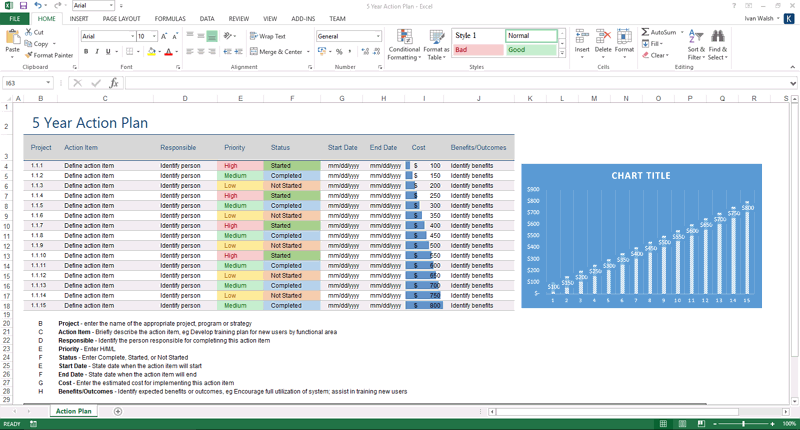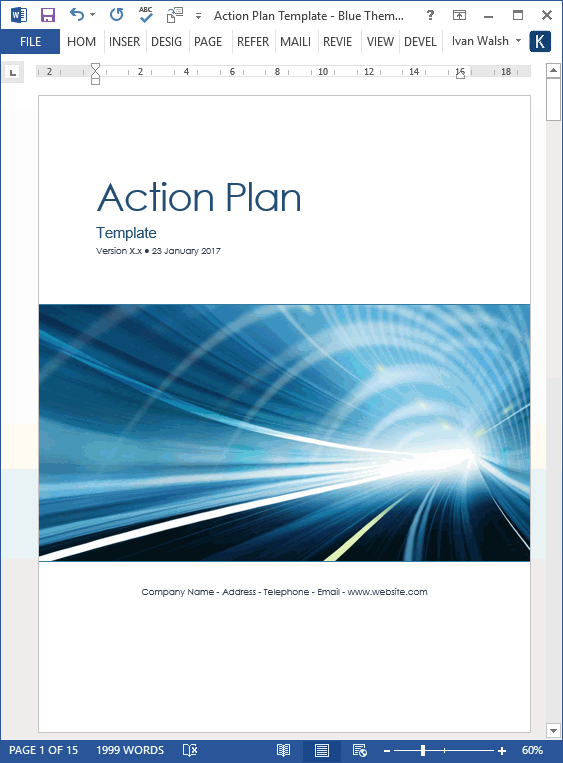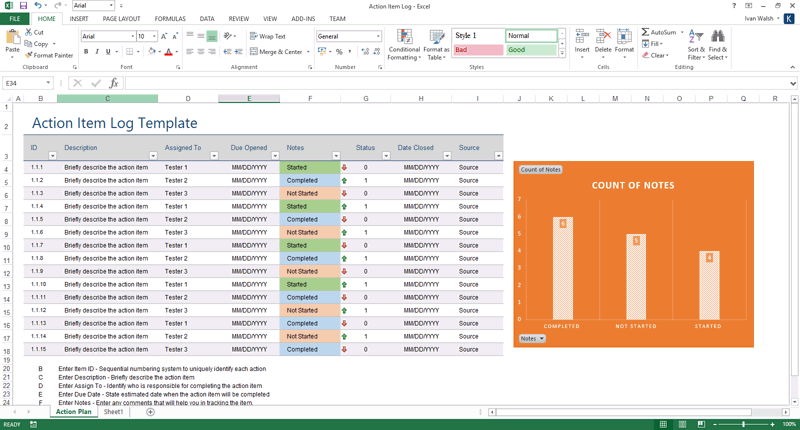Action Plan Templates
The One Surprising Benefit of a Daily Action Plan (Excel templates)
I’m not the type of person that likes to plan, but I do see the benefit. Taking f.a.t., for example. It’s really hard to get rid of. Try as I might it just won’t budge.
Actually, that’s not totally true. If I create a goal, stick to it, and measure my success, the pounds do come off. So, what happens? I back slide.
In other words, I make some progress, get complacent and forget my aim. But I know it works. So, then when I gain a few pounds again, I go back to the plan. Maybe you feel the same way.

That works for me. What about you?
The One Surprising Benefit of a Daily Action Plan
[Learn more about these MS Word and Excel templates here]
Here’s something that I have seen though and then does work.
If you reduce the aim, make it smaller, and commit to a shorter timeframe, it works.
Take this blog post, for example. Since March, I’ve written two posts. That’s all.
Why?
I decided to write posts of at least 1000 words. Mega-posts, Wikipedia style. And I did start about a dozen of them. But none are ready for publishing. There’s gaps here and there. So, nothing has been published.
Tonight, I decided a different tactic. Write for 30 min, no more, then stop. Whatever we get in that 30 minutes goes online. So far I have wrote 209 words in 15 minutes. Not great but it’s something.
It’s a starting point.
You see, my goal isn’t to write for the sake of it. It’s to kick start the process. Reducing the aim – changing my approach – has allowed me to clear the decks for half an hour and get into the groove again.
I suspect that if I can keep this up for two weeks, I’ll start writing longer and more frequently.
So, here’s how I see it if you want to create a daily action plan:
- Identify one goal. Make it as atomic as possible. One specific task.
- Set a time when you will perform this task, for example, for me it’s 8 pm every evening.
- Set a timeframe for this goal. In this case, I want to write every second night for two weeks.
- Reward yourself.
- Resist the temptation to increase the goal when things are going well. That’s a trap. Ask any jogger. You go running, feel great, and push on for an extra 5k. Next day you’re injured and out for a week or more.
If I could add one more thing it would be to perform your action plan as early in the day as possible.
For me, my willpower is strongest in the morning.
After a day in the office, after dealing with the kids, after… it doesn’t have the same resilience.



